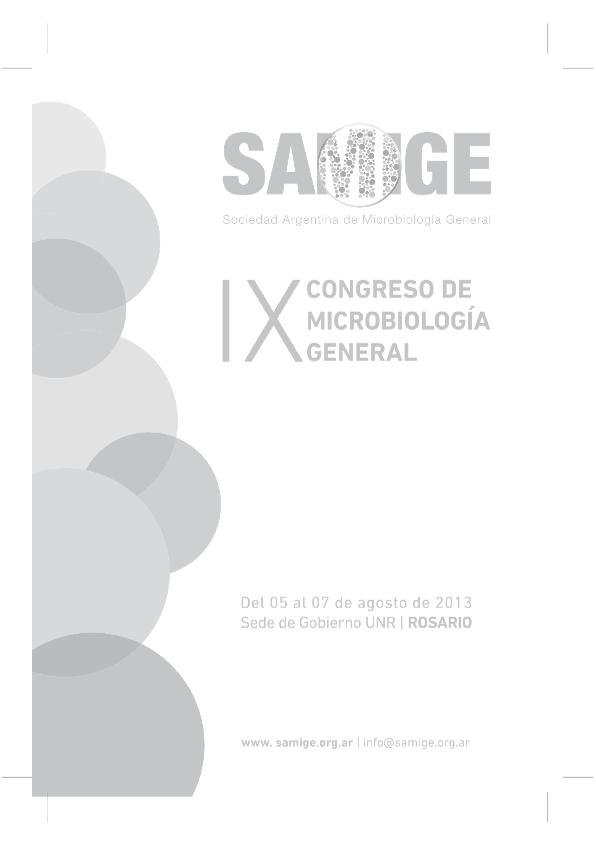Mostrar el registro sencillo del ítem
dc.contributor.author
Martinez, Ezequiel M.
dc.contributor.author
Guindán, Carlos J.
dc.contributor.author
Manfredi, Adriana Paola

dc.contributor.author
Perotti, Nora Ines

dc.date.available
2023-03-16T13:14:26Z
dc.date.issued
2013
dc.identifier.citation
Evaluation of the effect of glucose and carboxymethylcellulose on the endoglucanase production by bacillus spp.; IX Congreso Nacional de Microbiología General; Rosario; Argentina; 2013; 1-2
dc.identifier.uri
http://hdl.handle.net/11336/190755
dc.description.abstract
The production of bioethanol from the abundant and renewable lignocellulosic biomass has risen as a promising approach in the recent years. Cellulose, the most common natural renewable biopolymer, is degraded by the hydrolytic action of a multicomponent enzyme system which represents the key step for such biomass conversion. This enzymatic hydrolysis requires the synergistic action of exoglucanases, endoglucanases and β-glucosidases. As a whole, cellulases contribute the 8% of the worldwide industrial enzyme demands, which are expected to increase by 100% within 2014. As a source of novel cellulases, Bacteria are considered a valuable source of enzymes due to their high growth rate and their diverse repertoire of glycoside hydrolases. Hence, we evaluated a collection of cellulase producing bacteria isolated from guts of phytophagous insects. As a result, two isolates were selected due to their high endoglucanases production. These isolates were named as AR03 and AR408 and taxonomically identified as Bacillus spp. by means of the 16S rRNA gene sequences analysis. A limiting factor in the production of enzymes in our study was the low biomass obtained in mineral media with cellulose as the sole carbon source. Thus, we used a modified peptone broth based on a commercial culture media in order to increase the microbial growth. Then, the media components were evaluated by using a systematic approach through factorial design with the statistical software MINITAB® (14.12.0), in order to assess the most useful conditions for enzyme production. Once achieved a good bacterial growth, we tested glucose and carboxymethylcellulose (CMC), individually and combined, as substrates for the production of endoglucanases. The enzymatic activity was quantified by determining reducing sugars released with the 3,5-Dinitrosalicylic acid (DNS) reagent. Despite the fact that the two isolates studied were closely related as Bacillus species, they displayed a different behavior. AR03 produced the highest enzymatic activity using CMC (1.15 U/mL), but also showed a significant ability to produce endoglucanases using media with glucose and in the absence of CMC, reaching activities over 0.50 U/mL. On the other hand, AR408 produced endoglucanases only in the presence of CMC in the culture medium.
dc.format
application/pdf
dc.language.iso
eng
dc.publisher
Sociedad Argentina de Microbiologia General
dc.rights
info:eu-repo/semantics/openAccess
dc.rights.uri
https://creativecommons.org/licenses/by-nc-sa/2.5/ar/
dc.subject
Hydrolase
dc.subject
Bacillus
dc.subject.classification
Bioprocesamiento Tecnológico, Biocatálisis, Fermentación

dc.subject.classification
Biotecnología Industrial

dc.subject.classification
INGENIERÍAS Y TECNOLOGÍAS

dc.title
Evaluation of the effect of glucose and carboxymethylcellulose on the endoglucanase production by bacillus spp.
dc.type
info:eu-repo/semantics/publishedVersion
dc.type
info:eu-repo/semantics/conferenceObject
dc.type
info:ar-repo/semantics/documento de conferencia
dc.date.updated
2023-03-14T11:06:18Z
dc.journal.pagination
1-2
dc.journal.pais
Argentina

dc.journal.ciudad
Rosario
dc.description.fil
Fil: Martinez, Ezequiel M.. Universidad Nacional de Tucuman. Facultad de Cs.exactas y Tecnología. Departamento de Ingeniería En Procesos y Gestion Industrial. Laboratorio de Biotecnología; Argentina
dc.description.fil
Fil: Guindán, Carlos J.. Universidad Nacional de Tucuman. Facultad de Cs.exactas y Tecnología. Departamento de Ingeniería En Procesos y Gestion Industrial. Laboratorio de Biotecnología; Argentina
dc.description.fil
Fil: Manfredi, Adriana Paola. Consejo Nacional de Investigaciones Científicas y Técnicas. Centro Científico Tecnológico Conicet - Tucumán. Planta Piloto de Procesos Industriales Microbiológicos; Argentina. Universidad Nacional de Tucumán. Facultad de Ciencias Exactas y Tecnología; Argentina
dc.description.fil
Fil: Perotti, Nora Ines. Consejo Nacional de Investigaciones Científicas y Técnicas. Centro Científico Tecnológico Conicet - Tucumán. Planta Piloto de Procesos Industriales Microbiológicos; Argentina
dc.relation.alternativeid
info:eu-repo/semantics/altIdentifier/url/https://samige.org.ar/wp-content/uploads/2022/10/Libro-samige-2013.pdfhttp://www.samige.org.ar/doc/2013/libro%202013.pdf
dc.conicet.rol
Autor

dc.conicet.rol
Autor

dc.conicet.rol
Autor

dc.conicet.rol
Autor

dc.coverage
Nacional
dc.type.subtype
Congreso
dc.description.nombreEvento
IX Congreso Nacional de Microbiología General
dc.date.evento
2013-08-05
dc.description.ciudadEvento
Rosario
dc.description.paisEvento
Argentina

dc.type.publicacion
Book
dc.description.institucionOrganizadora
Sociedad Argentina de Microbiologia General
dc.source.libro
Libro de Resúmenes: IX Congreso Nacional de Microbiología General
dc.date.eventoHasta
2013-08-07
dc.type
Congreso
Archivos asociados
